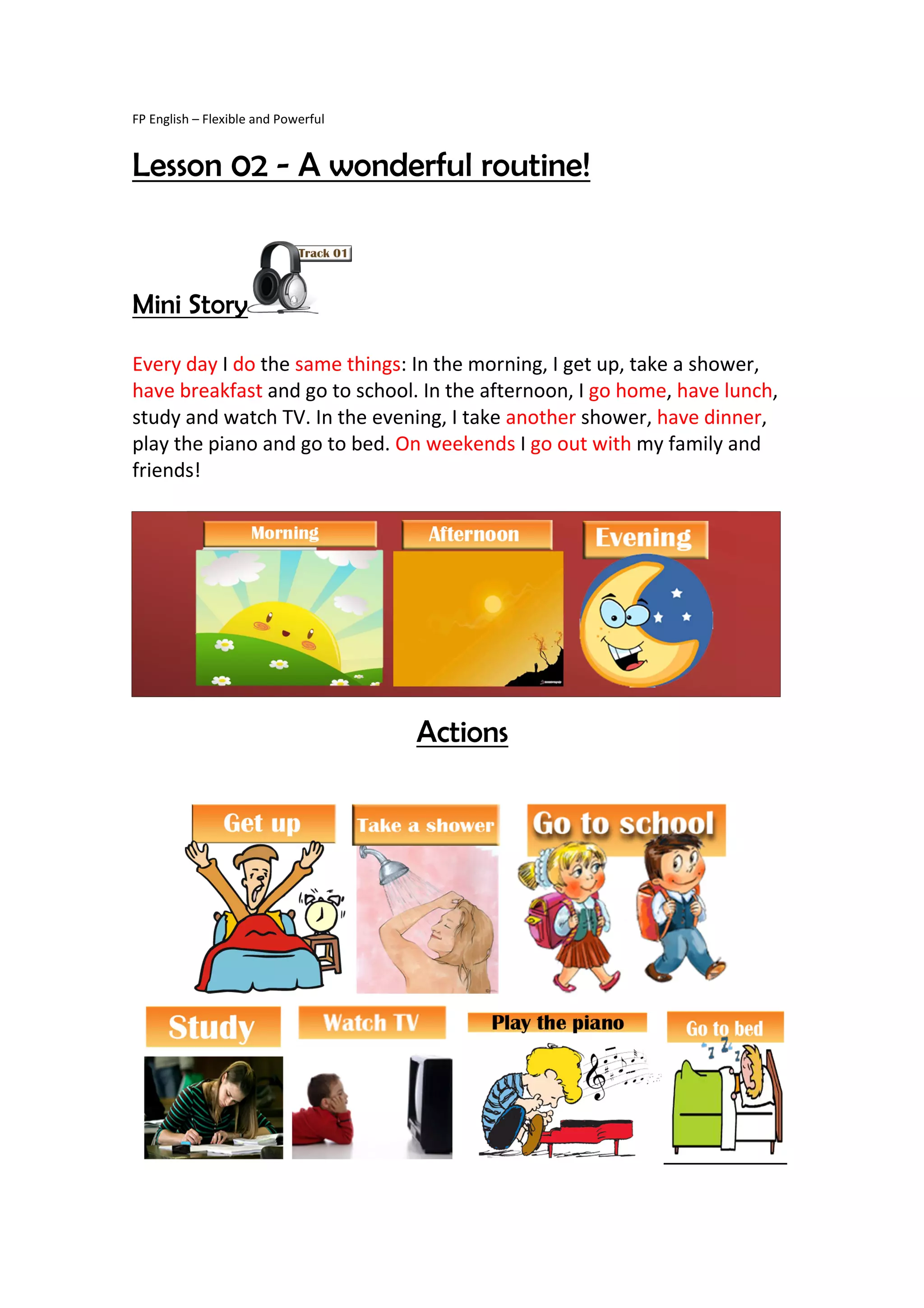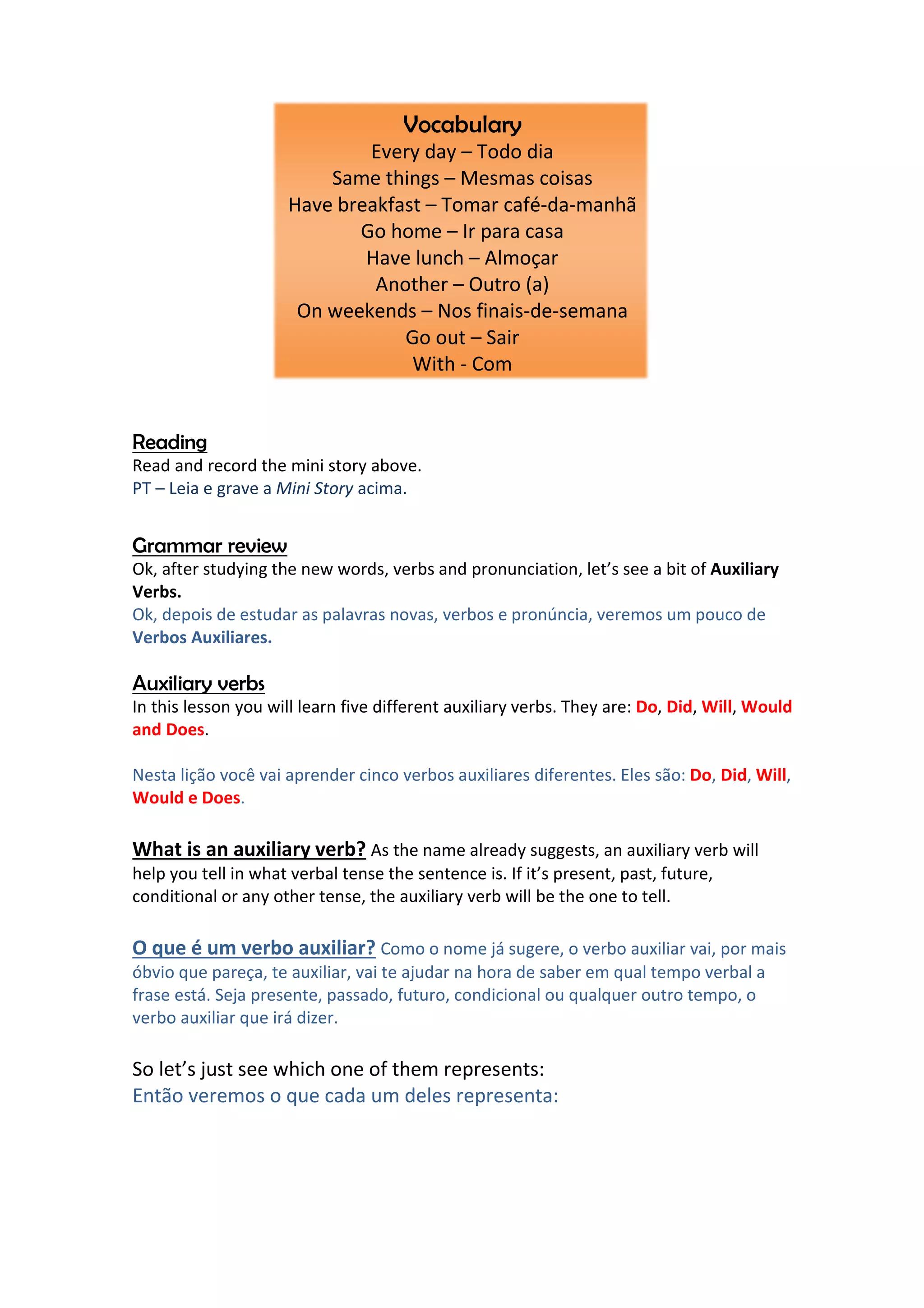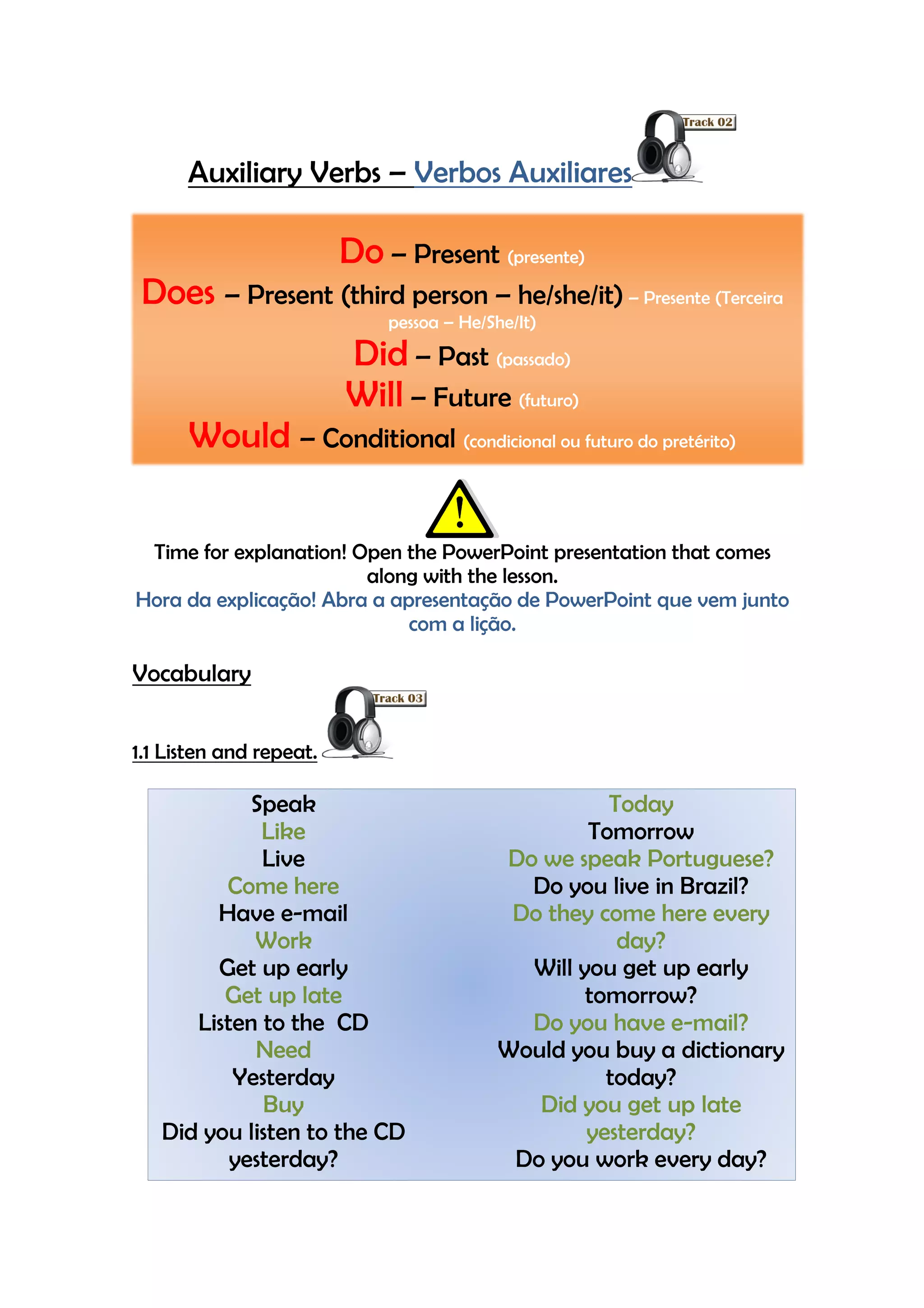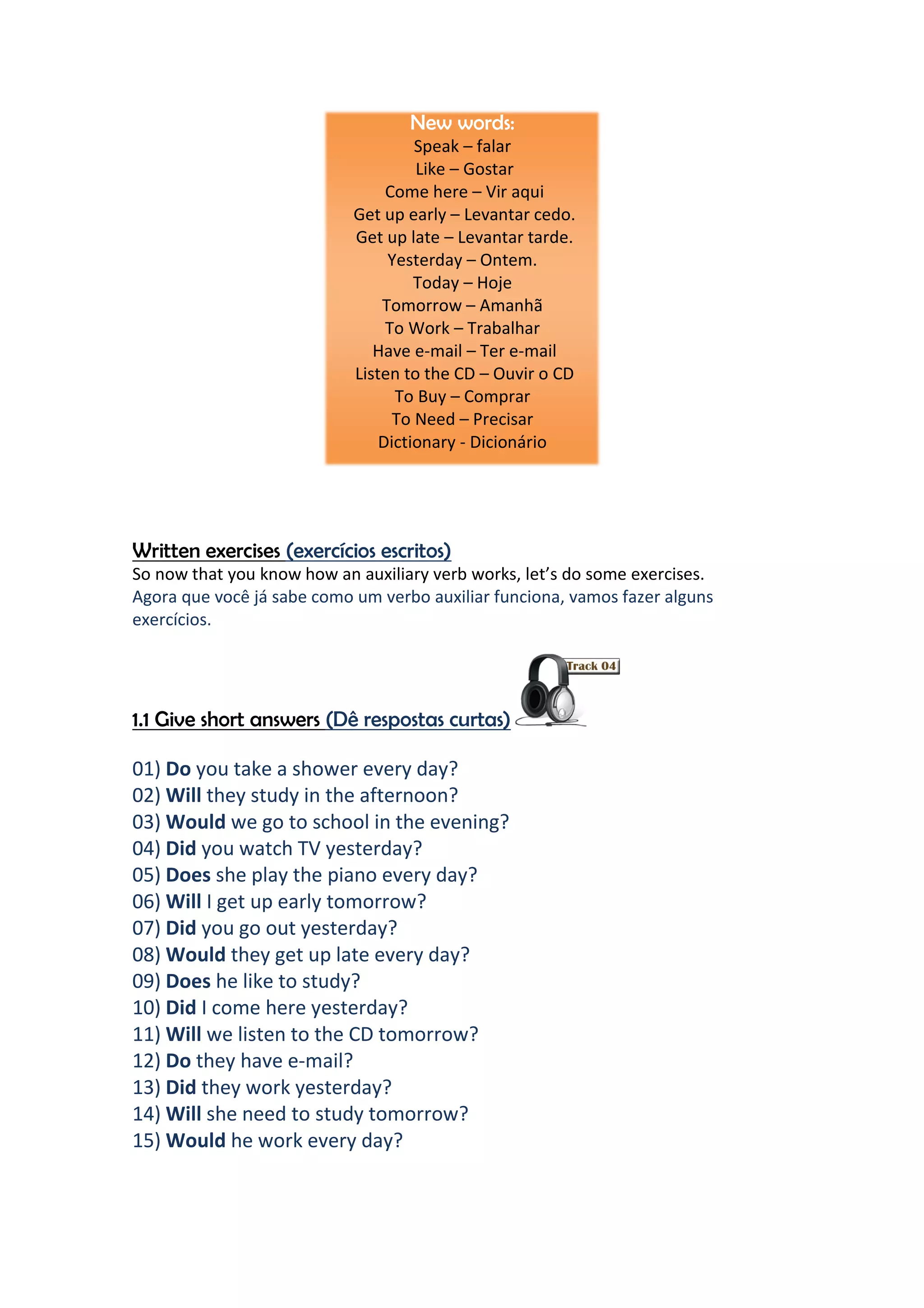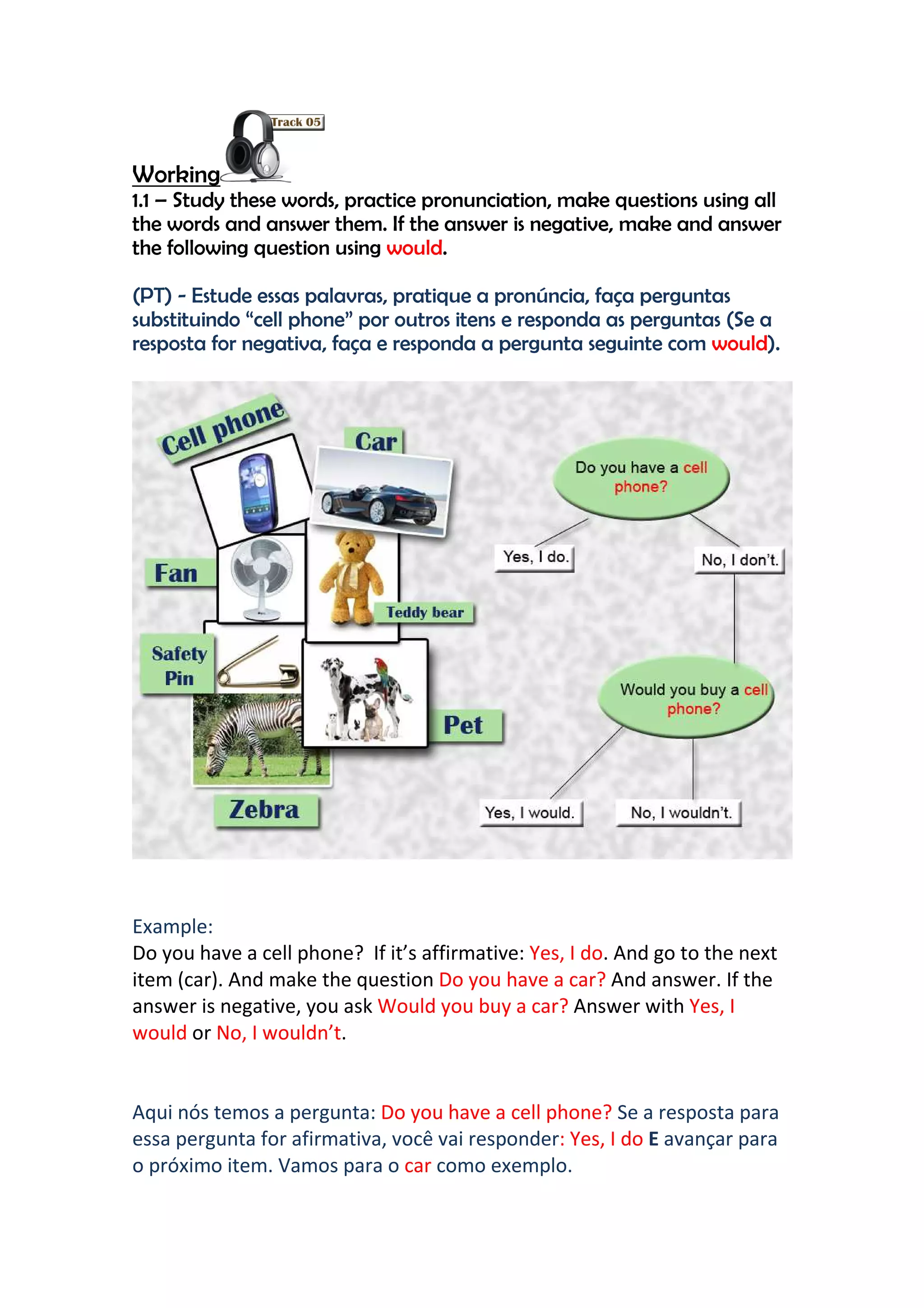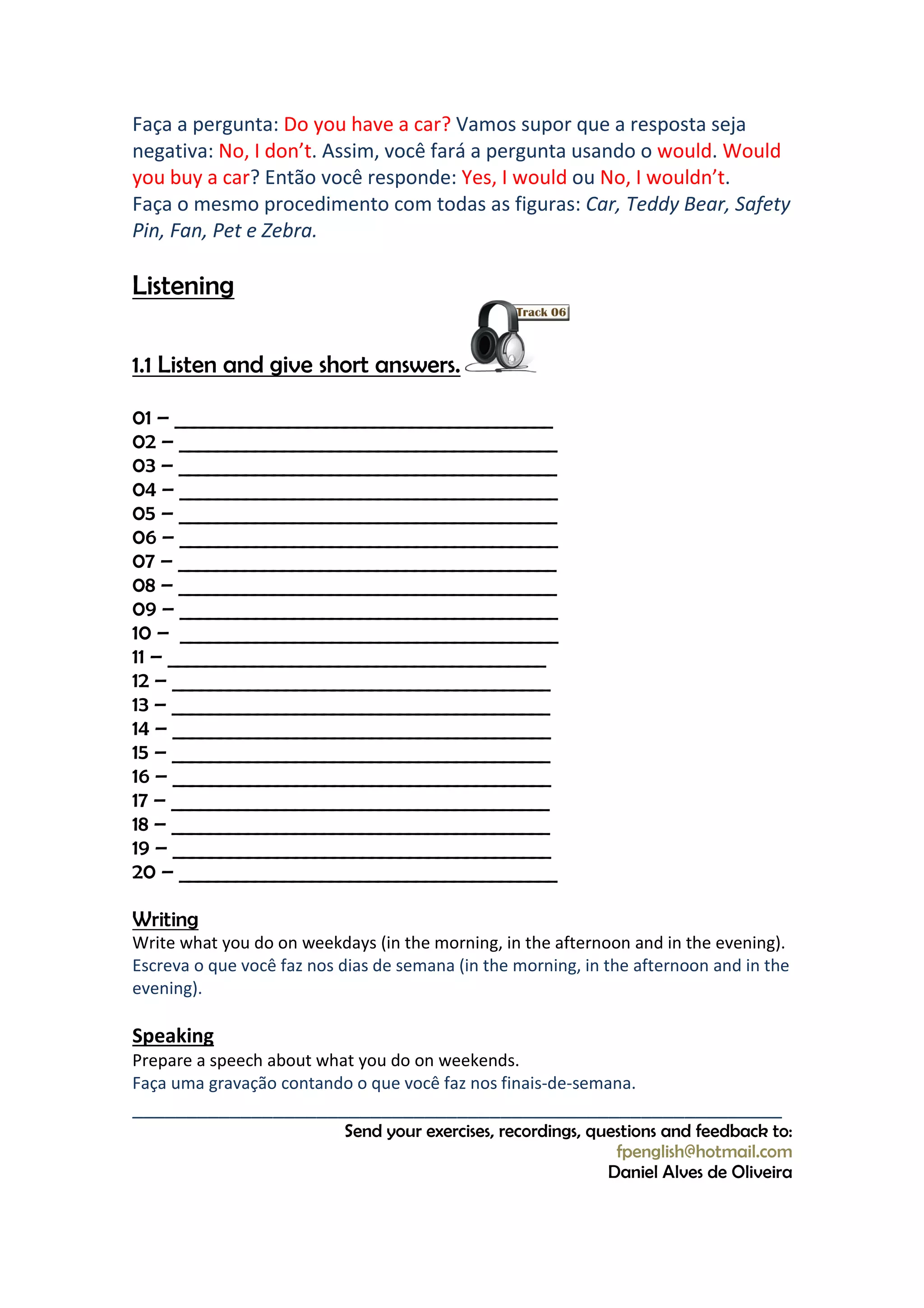The document is an English lesson about routines. It contains a mini story describing a character's daily routine of waking up, eating meals, going to school/home, studying, watching TV and going to bed. It also contains vocabulary words and grammar explanations about auxiliary verbs like do, did, will and would. Exercises are provided to practice using these auxiliary verbs in questions and answers about daily activities.
